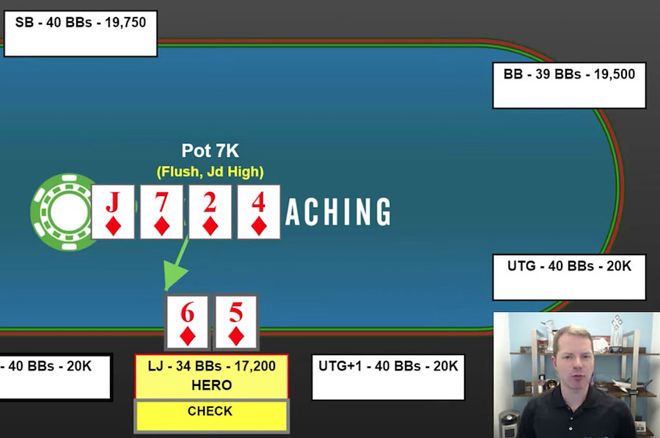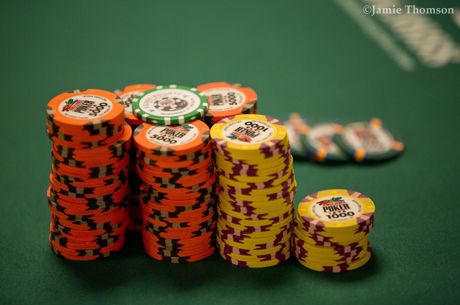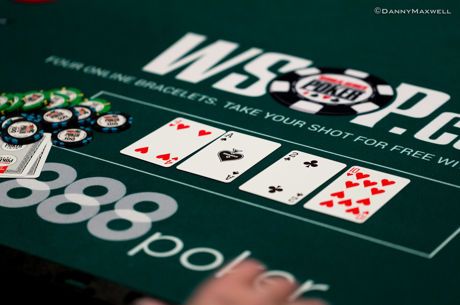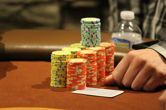How to Play When a Flopped Flush Turns Into a Marginal Made Hand

Today's hand comes from a $1,000 buy-in no-limit hold'em World Series of Poker event. It presents a situation in which I played small suited connectors and flopped well (making a flush), but when the turn brought another suited card I had to decide how to play what had quickly become a marginal made hand.
With blinds were 250/500, it folded to me in middle position where I had been dealt 6?5?. As I talk about in the video below, folding this hand would be fine here, but raising is fine, too, and that's what I did, making it 1,200 to go.
Only the tight-aggressive player in the cutoff called, and with 3,750 in the middle the flop came J?7?2? to give me a flush.
With the nut flush I could consider slow playing, but with a small flush a bet is definitely in order. I bet 1,600, my opponent called, and with the pot close to 7,000 the turn was the 4?.
At this point my hand had become very vulnerable, and as such I had to be more cautious from this point forward. See what happens and listen as well to my discussion of the hand and some of the factors I was considering when deciding how to proceed.
When you flop a flush and it gets much worse on the turn, realize that you have a marginal made hand and play it accordingly. Don't be blinded by the fact that you have a hand that is normally quite strong.
Jonathan Little is a professional poker player and author with over $6,900,000 in live tournament earnings. He writes a weekly educational blog and hosts a podcast at JonathanLittlePoker.com. Sign up to learn poker from Jonathan for free at PokerCoaching.com. You can follow him on Twitter @JonathanLittle.









